I give special thanks to the almighty God that I am alive to witness the end of Blaise Compaoré ─ that traitor who set Africa back by a thousand years when he terminated the life of Thomas Sankara in 1987. Anytime I see Compaoré’s image, I have nothing but resentment towards him. I have nothing but disdain for the assassin who truncated the evolution of an authentic modern story of leadership in Africa. I have never wished him well since his men took out Sankara, a budding African leader who was trying to write a genuine script for the transformation of our continent.
I was a fan of Sankara ─ yes. I am not a Marxist, by any variation of the definition. But I have nothing against any African leader who leads my example, who is not given to greed. Although I believe whole-heartedly in multi-party democracy, I have always had some accommodation for leaders, whether military or civilian, who are motivated by genuine love for country and transparent desire to transform the society. I have nothing against genuine leaders who are transparently honest.
What did Sankara (pictured) represent? Coming to power in 1983, he was very plain about what he came to do: change the society both in orientation and structure. Africa has been ruled for too long by brainless and shameless leaders who know not their left from their right. He was one of the very few who had a clear, selfless vision. His philosophy was very much influenced by Marxism, and he said a lot of things about revolution, liberation, imperialism, the proletariat and the bourgeoisie ─ which is actually none of my business. In practical terms, he went about transforming Burkina Faso.
Why I love Sankara to bits was that he practised what he preached ─ something you are not likely to say about a typical African leader. He disdained waste of public funds. On assuming power, he sold off government’s fleet of Mercedes cars. He made the cheapest car ─ Renault 5 ─ the official vehicle of ministers. Compare this to Nigeria where ministers spend hundreds of millions of naira to buy bullet-proof cars, where presidential and “gubernatorial” jets are the order of the day in the face of millions of people going to bed hungry every night.
Advertisement
Sankara reduced his own salary. He was earning $450 a month. Compare this to Nigeria where governors earn millions of naira in and out of office, with the full complement of domestic staff and mansions at home and abroad. Sankara banned first class tickets for government officials ─ but a minister in Nigeria will spend N15 billion to hire private jets. After his assassination, all of Sankara’s possessions were a Renault 5, a fridge, a freezer, four bikes and three guitars. He was officially the world’s poorest president.
Agriculture was Sankara’s major focus. He fought desertification and famine. He seized lands from the feudal landlords (including his family’s land) and redistributed them to peasant farmers. In his time, Burkina Faso witnessed tremendous improvement in farm yield: wheat production doubled. His country became self-sufficient in wheat. Sankara, a proud African, rejected imperialism. He opposed foreign aid, saying again and again: “He who feeds you controls you.” He asked African countries to repudiate their foreign debts which were piled on the continent by Western agents in connivance with thieving African leaders.
Long before the world started hammering on women empowerment, he made it a core policy of his administration. His government was filled with women. He encouraged them to join the military ─ seen as a preserve for the men. He outlawed polygamy, female circumcision and forced marriages. He encouraged women to stop being mere housewives. He told schoolgirls who became pregnant not to abandon education. He promoted family planning to save the career of millions of women who had been turned to mere baby factories.
Advertisement
Sankara encouraged husbands to go to the market to shop for the house. He asked them to learn cooking, so that they could support their wives at home and experience what women go through. This was nothing but revolutionary thinking in Africa. He clearly recognised what great role women could play in development. In fact, he said: “The revolution and women’s liberation go together. We do not talk of women’s emancipation as an act of charity or because of a surge of human compassion. It is a basic necessity for the triumph of the revolution. Women hold up the other half of the sky.”
Of course, Sankara was by no means perfect. I am still searching for a perfect human being. As a military man, he committed a lot of excesses ─ banning unions to prevent strikes against his reform and stifling free press to forestall dissent. No leader who wants to change the society will not carry the image of a dictator. Rwanda’s Paul Kagame is one. Singapore’s Lee Kwan Yew was another. And even though Sankara’s people loved him, these excesses were beginning to get under their skin. And, sure, the colonial masters, the African civilian and military despots, and the feudalists were never happy with Sankara.
That, unfortunately, set the stage for a tragic alternative: Blaise Compaoré, who happened to be Sankara’s confidant and friend. On October 15, 1987, the new African story was abruptly terminated. Compaoré’s men shot Sankara and 12 guards dead in a bloody coup. One of the surviving guards said when the troops came in, Sankara raised his hands and said: “Take me. I’m the one you want.” They sprayed him with Kalashnikov fire, finishing him off with a grenade. The body of one of the most handsome African faces was dismembered and buried in unmarked grave. Burkinabes cried and mourned, calling the coupists “assassins and traitors”.
Compaoré took over power, described Sankara as a “megalomaniac” and began to reverse his policies. That marked the death of a dream. Compaoré grabbed his country by the throat and raped it for 27 years, changing the constitution at will. He organised an election for himself in 1991 and became civilian president after a voter turn-out of 25%. He got a dubious second term seven years later, but was not satisfied. He changed the constitution. He got the courts to say he could run under the new constitution, and so he got a new term in 2005.
Advertisement
But as greed goes, he sought yet another term in 2010. With 2015 closing in and his reign about to end as stipulated by the constitution, he had been busy conniving with the Parliament to change the constitution yet again to give him another term till 2020. But Burkinabes had had enough after 27 years of greedy, manipulative and visionless leadership. Last week, they spilled into the streets and set the parliament on fire. On Friday, Compaoré ran away from office with the blood of Sankara still a stain on his conscience. He is now a former president. Nothing lasts forever.
I don’t know if the change in Burkina Faso will produce another Sankara or a Compaoré, but there is one thing I know and I’m very happy for: the traitor is gone. Forever.
AND FOUR OTHER THINGS…
TAMBUWAL’S TURN
The gale of defections in Nigeria has recorded its biggest catch ever ─ the No. 4 citizen and speaker of the house of representatives moving to an opposition party. Hon. Aminu Tambuwal has finally done it. The drama surrounding his defection from the Peoples Democratic Party (PDP) to the All Progressives Congress (APC) has also raised his profile, and his supporters are now touting him as a possible APC presidential candidate. It’s a tough call since there are well-respected aspirants already in the fray. But as politics goes, his supporters hope he will end up as the “compromise candidate”. Interesting.
Advertisement
ESCORTS AND COURTS
Are the police empowered to interpret the constitution? The withdrawal of security escorts from the speaker following his defection is raising that amusing question. The police said having defected from the PDP, Tambuwal is no longer a lawmaker in line with section 68(1)(g) of the 1999 constitution and should lose the privileges. My opinion is that police cannot declare anybody’s seat vacant ─ that’s the job of the Independent National Electoral Commission (INEC), which should follow a complaint from the PDP. Police are allowed to arrest a criminal without seeking court order, but defection is not a criminal offence. Never.
Advertisement
CEASEFIRE OR CROSSFIRE?
Any doubt that Boko Haram had declared a ceasefire or not should have been laid to rest by now. Not only have they launched ferocious and audacious attacks in recent days, not even one Chibok girl has been released, contrary to claims by government officials that the “negotiations” WEre going well. Now, Abubakar Shekau, the supposedly killed leader of the sect, has released a video denouncing the so-called ceasefire. Ladies and gentlemen, this is embarrassing. Who are we discussing with? Why have they not released a single girl if they are genuine? Is it some poor joke or what? Confounding!
Advertisement
KESHI, YOU AGAIN?
Am I the only one that is tired of the circus around the Nigeria Football Federation (NFF) and Super Eagles’ coach, Stephen Keshi? After telling us how lucky we are to have him as a coach and how the whole world wants to hire him, I am amazed that Keshi has returned to his vomit. He is a smart chap. How many countries will give him so many cars and so much money for winning the Africa Cup of Nations? How many countries can pay him N10million for handling three matches, despite winning only one? I’ll tell you the country. Nigeria.
Advertisement
5 comments

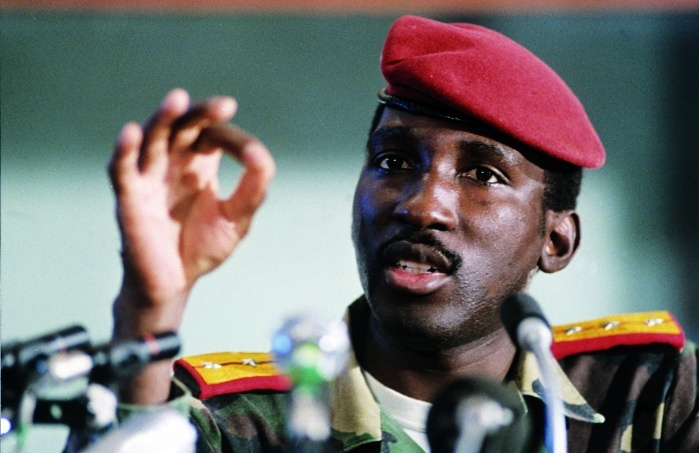
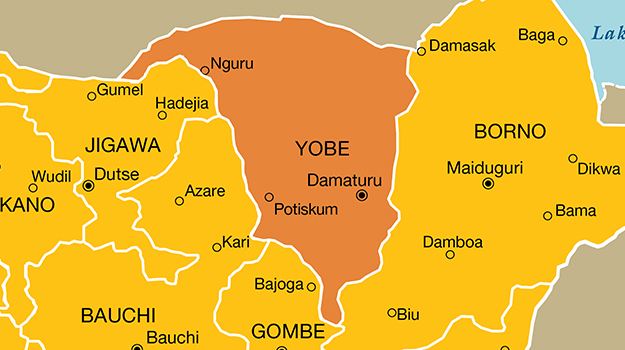
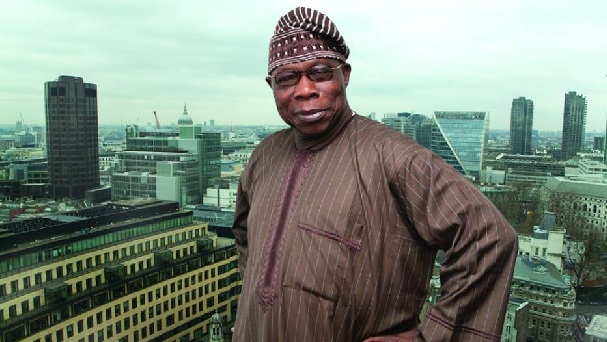
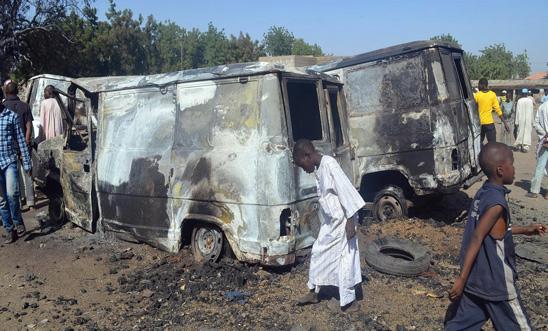
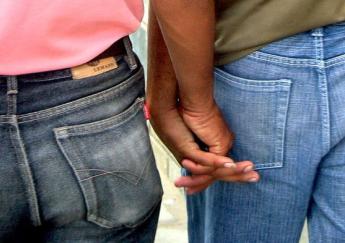
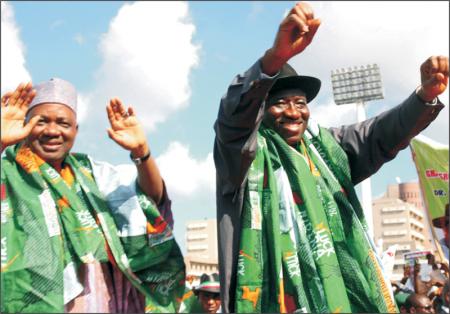
nice write up,but my major concern is that of statement you made about Tambuwal contesting for APC presidential seat.to slug it out with GMB will be a little bit difficult.
SK, honestly, you seem to be one of the very few publishers that are principled, altruistic, objective in analysing issues, truthful on national/international matters, unbiased and unsentimental in disposition to critical political cum economic issues. Your opinions on almost all issues are never self centred and that makes me always want to read your pieces, just as much as I love to read Dele Momodu’s contributions anywhere and anyhow I get them. God bless you and keep doing what you are doing without wavering.
Great piece!!!
I have always been a fan of Simon’s pages, very true and realistic. But please leave out Tambuwal and the issues of those greedy so called members representing our constituencies. Please tell me what heroic gestures Tambuwal has made? Has he renounced those jeeps and unnecessary escorts? Has he rejected first class tickets? Please…. I see nothing but another opportunist claiming false greatness…
Nice article. This I must add. All the accolades on Sankara are undeserved. He was a dictator who did what he did with draconian decrees that usurp the fundamental human rights of his people. The rights to free speech and associations and to ELLECT their leaders. Just like the brutish and crass Rawlings of Ghana. We are glad Blaise is gone. Another horrific political chapter in Africa is closed.
Democracies have built the best and the strongest world economies. See USA, UK, Germany, Canada etc. Democracy is the greatest political idea of our generation. Dictatorships bread socioeconomic and political chaos. We have seen what happened to our beloved Nigeria. The same is happening in Zimbabwe, Uganda, Guinea, Sudan, Cameroon etc.
Nigerians must embrace our young democracy and nurture it to marturity. Through participative and collective efforts, Nigerians can always ellect able and patriotic leaders. We never had these opportunities for many decades of mediocre and autocratic military administrations. We must not allow the return of dictators in Nigeria. Period.